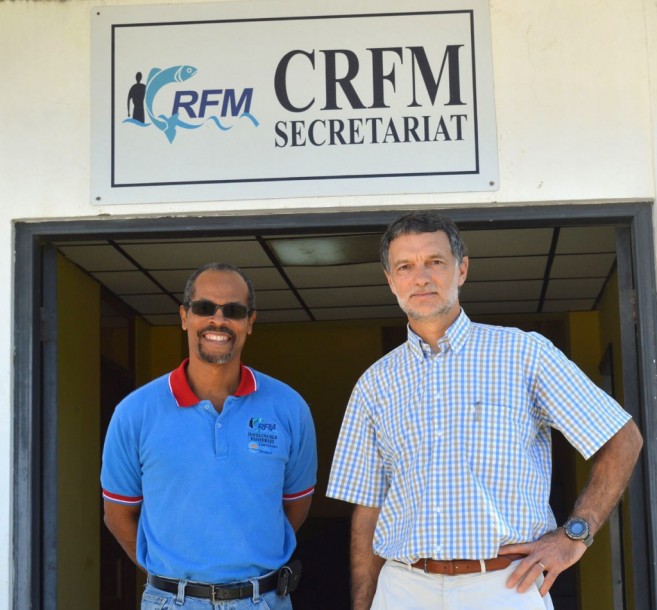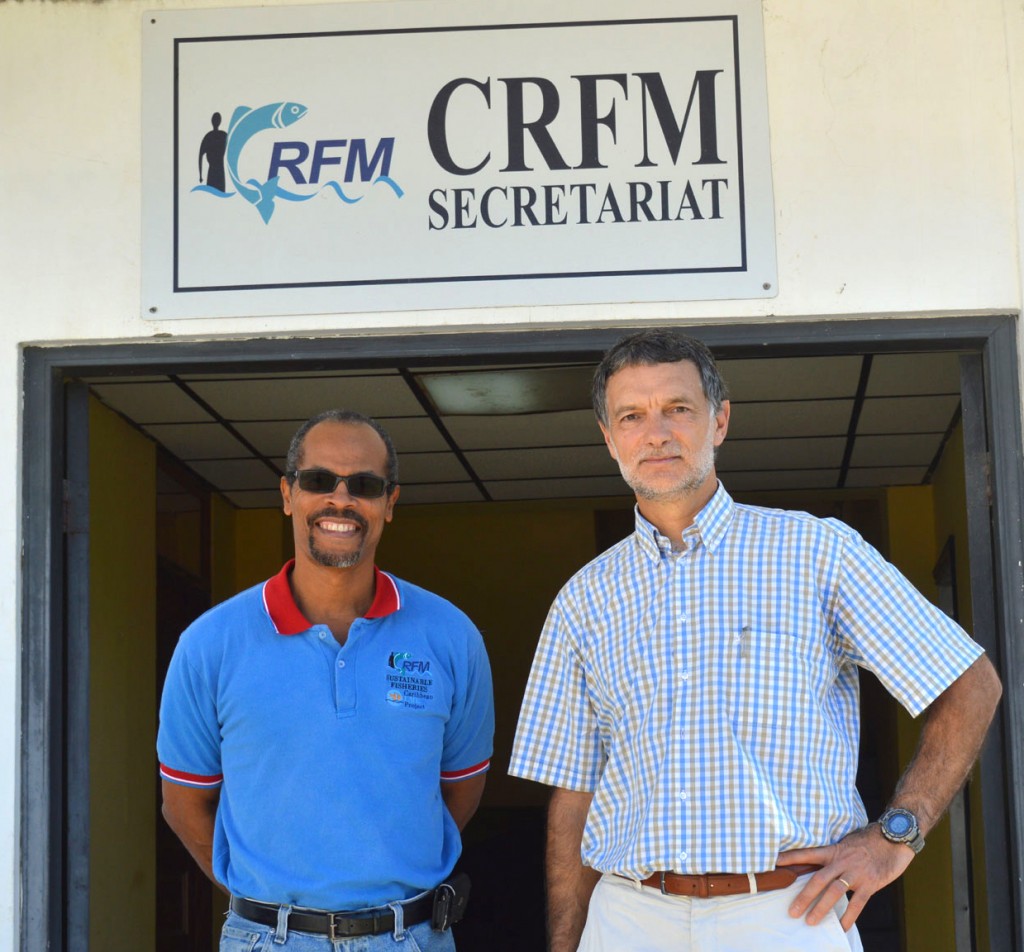Press Release – Caribbean Regional Fisheries Mechanism (CRFM) – November 21, 2016 – The coming of the digital age presents novel opportunities for the fisheries and aquaculture sector of the wider Caribbean to build a more robust data and information system that would augment the monitoring of production trends and traceability of catches, support more sustainable management regimes through increased people engagement, and facilitate stronger international and regional trade.
The Caribbean Regional Fisheries Mechanism (CRFM) and the United Nations Food and Agriculture Organization (FAO) are teaming up to capitalize on opportunities for Member States to strengthen data collection and management systems through the use of modern technology, such as smartphones and wireless communications to bridge gaps in the system.

“Strengthening our fisheries data and information management systems is extremely important going forward. It is necessary in order to improve resource conservation and management and also improve the socio-economic benefits from the fisheries. It will help in improving income and revenue from the fisheries and strengthen the countries’ capacity to participate in international trade,” said CRFM Executive Director, Milton Haughton.
Haughton said that “…our decisions really need to be based on good knowledge of the resource systems—both in terms of the state of the targeted fish stocks and the marine environment, as well as the activities on land after the fish is taken; that is, activities in the processing and marketing sectors. We really need to have accurate data and information to understand what is happening and to make informed decisions about what is happening in the sector.” Unless traceability is established through enhanced data and information systems, it will become increasingly hard for countries in our region to trade internationally, he said.
Haughton highlighted these challenges in his recent discussions with Marc Taconet, Chief of the Statistics and Information Branch of the Fisheries and Aquaculture Policy and Economics Division at the FAO in Rome.
Taconet was on a working visit at the headquarters of the CRFM in Belize City, Belize, last week. He and Haughton talked about strengthening CRFM-FAO cooperation, and they collaborated on a concept note for cooperation in improving data and information systems across CRFM Member States for fisheries and aquaculture. A planning meeting is tentatively slated for February/March 2017.
“There are innovative technologies such as the use of mobile phones, tablets, and remote inputs; and the co-involvement of fish workers is necessary to be set up. This is one of the needs that were strongly expressed,” said Taconet, in speaking of wider discussions with fisheries experts from the Caribbean.
He said that one gap is the lack of an integrated software system—an issue that was raised when he paid a courtesy call on counterparts of the Belize Fisheries Department, located on the same premises as the CRFM.
According to Taconet, the timeline to reach ‘cruise speed,’ with an upgraded data and information system is two to three years.
The CRFM and the FAO are currently sourcing funds to undertake this new joint initiative, which furthers a Memorandum of Understanding (MOU) signed this January between the Food and Agriculture Organisation (FAO)/Western Central Atlantic Fisheries Commission (FAO-WECAFC), the Caribbean Regional Fisheries Mechanism, and the Organisation of the Central American Fisheries and Aquaculture Sector (OSPESCA), in Cartagena, Colombia, to facilitate, support and strengthen the coordination of actions to increase the sustainability of fisheries.
ABOUT THE CRFM:
The Caribbean Regional Fisheries Mechanism (CRFM) was officially inaugurated on 27 March 2003 in Belize City, Belize, where it is headquartered, following the signing of the “Agreement Establishing the CRFM” on February 4, 2002. It is an inter-governmental organization whose mission is “to promote and facilitate the responsible utilization of the region’s fisheries and other aquatic resources for the economic and social benefits of the current and future population of the region.”


